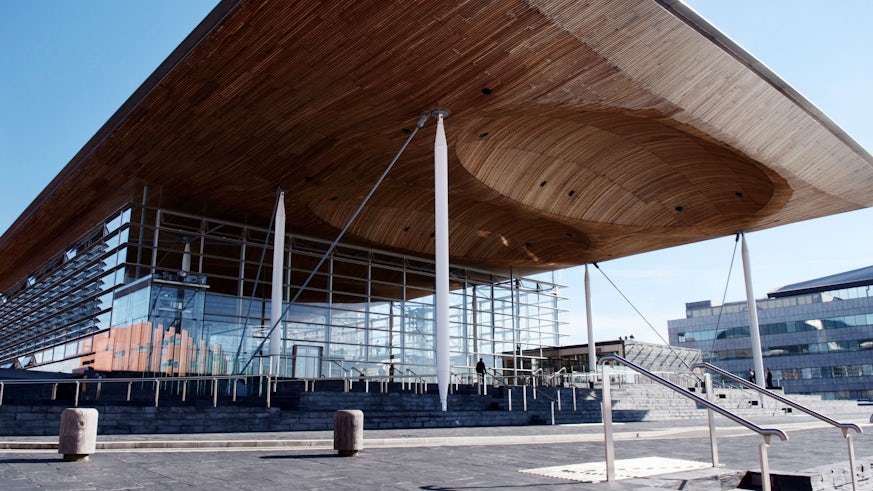Barriers continue to prevent potential Assembly candidates from standing, report concludes
5 July 2018

Action is needed to encourage a wider range of people from underrepresented groups to enter politics, academics say.
The team from Cardiff University’s Wales Governance Centre and London Metropolitan University studied what motivates and discourages people from considering running for election to the National Assembly.
There is currently a drive to make the Assembly more reflective of those living in Wales including those from a wider range of occupational backgrounds and it is known that young people, women, people with disabilities and those from LGBT and BAME groups are poorly represented.
The work, commissioned by the Assembly’s Remuneration Board, sought opinions from people across Wales, including those who had previously stood for election. Taking place over five months, the researchers gathered a wide range of views through surveys, before asking more detailed questions in focus groups and one-to-one interviews.
Results show 78% of those aged 18-24 and 55% of those aged over 65 perceived their age to be a barrier. Only 13% of those aged 45-54 and 15% of those 35-44 thought their age would be a hindrance.
Women were considerably more likely to appreciate incentives and see potential barriers – including family, safety and workload – as more significant. The results showed diversity quotas would make 44% of women more likely to stand. Job sharing was also a popular incentive among women, with 68% saying it would make them more likely to stand.
Cost was a significant deterrent for those who took part in the research. More than 65% of respondents said the cost of running as a candidate was a barrier they would need assistance to overcome; 20.7% classed it as a significant barrier which meant that they would not stand. People from underrepresented groups were particularly influenced by these issues.
Other factors that affected people considering standing as a candidate included the complexities of navigating party candidate election procedures and the electoral system. A perceived climate of “toxicity” in politics also put people off.
A mentoring system offering shadowing opportunities of Assembly Members and post-election support was the most popular way to encourage potential candidates; 48% said they’d be more likely to stand with advice from an Assembly Member mentor, with 27.1% stating they’d be much more likely to stand with such a scheme in place. Particular attention should be given to those who were unsuccessful in being elected, it was found. A mentoring initiative was supported by 83% of women and 68% of people with a disability.
Professor Roger Awan-Scully, political scientist at the Wales Governance Centre commented: “This report represents one of the most detailed investigations ever undertaken into why people feel like they can’t stand as a candidate in National Assembly elections.
“Anyone involved in the democratic process will recognise the barriers we have identified, which are having a particular effect on groups who are already underrepresented in politics. They are deterring talented people from putting their names forward...”
“Mentoring schemes would give potential candidates experience of the political process and the opportunity to equip themselves with the skills, networks and confidence needed to be selected as a candidate.”
The report, Unpacking diversity: Barriers and incentives to standing for election to the National Assembly for Wales, makes 11 recommendations, which include:
- Mentoring and shadowing initiatives for potential candidates to learn about the role of an Assembly Member;
- Participation in an ‘Open Senedd week’ and candidate roadshows across Wales to bring information about standing as a candidate into communities;
- An ‘Access to Politics’ fund, to be considered jointly with the Electoral Commission, Assembly and Welsh Government, enabling candidates with disabilities and those from other under-represented groups to stand in elections;
- A new engagement strategy with the public and prospective candidates, including a re-design of the Remuneration Board’s website to include interactive and accessible content explaining how AMs are supported.
Professor Awan-Scully added: “As we consider major changes to Welsh democracy such as the future of the electoral system and the size of the Assembly, these recommendations must be taken on board so that the true diversity of Wales is reflected in our National Assembly.”
Dame Dawn Primarolo, Chair of the Remuneration Board said: “The Board welcomes the report and is grateful to the authors for undertaking the research on its behalf. The findings have identified several barriers that potential candidates may face as they consider whether they wish to stand for election to the National Assembly.
“The Board will consider the recommendations of the report in due course and we will also seek to work with other organisations in tackling those issues that are highlighted that are not within our remit. By working together to support individuals from as wide a range of backgrounds as possible to stand for election to the Assembly this will only strengthen the institution’s ability to deliver for the people and communities of Wales.”
Share this story
Undertaking innovative research into all aspects of the law, politics, government and political economy of Wales, as well the wider UK and European contexts of territorial governance.


